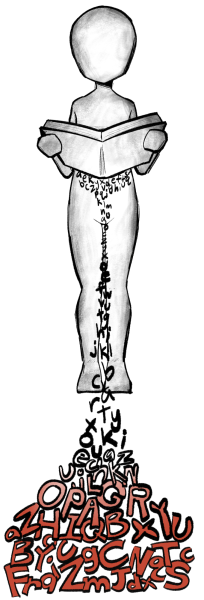October Sky launches otherworldly performance
October 2, 2015
On Oct. 4th, 1957, a beeping, unlike any sound heard before, emanated from radios across the United States. The sound came from a small object traveling across the night sky, an object glimpsed fearfully by millions of Americans. That object was Sputnik, a satellite launched by the Soviet Union and the first artificial Earth satellite. In the world premiere of the musical October Sky, by Aaron Thielen and Michael Mahler, it is also the beacon that allows teenage Homer Hickham to escape the confines of his mining town.
October Sky centers on Homer (Nate Lewellyn), a high school boy living in Coalwood, West Virginia, a rural Appalachian mining town characterized by little opportunity. Its inhabitants’ lives are lives of sacrifice. Parents spend their days in the deep recesses of the mine, and children go to school with the looming understanding that their future lies not in college but in the coal mines, except for the lucky few athletes who receive scholarships.
Llewellyn’s Homer begins the play as aimless and uninspired, yearning for the approval of his father, (David Hess) who is the mine superintendent, but conflicted as his dreams go beyond the constraints of his town. Only when he sees Sputnik is he energized to attempt to change his reality by building a rocket with his friends to enter into a science fair with the hope of gaining scholarships to university.
The innovative Marriott Theatre is unique because it is in the round: the audience surrounds the stage and is part of the set. The stark set of corrugated metal and wood beams cut in geometric shapes encloses the audience and immerses them in what it feels like to live in Homer’s world. The hazy rust red and blue lighting that opens the play is the permeating dust of Coalwood mines.
The music itself is exciting and fresh, a mixture of bluegrass, rock n’ roll and traditional musical theatre. While Michael Mahler’s score can become one-note at times, the actors sing beautifully and with great power and force. The music hints at the fellowship and community forged below the earth.
Homer’s solo “Look to the Stars”, is a poignant song about the power of dreams to uplift and inspire, sung sweetly by Llewellyn. “Never Getting Out Alive,” about fitting in high school, is a wonderful ensemble number, in which fabulous ‘50s costumes are showcased. Truly the most exciting was “Moonshine,” in which Homer and his friends, O’Dell (Ben Barker), Roy (Patrick Rooney), and Quentin (the hilarious Alex Weisman), find rocket supplies in an unlikely place.
Susan Moniz is moving as Elsie, Homer’s mother, as is Johanna McKenzie Miller as Miss Riley, who serves as a poignant reminder of the importance of teachers as mentors and guides. While historical context about the Cold War and the fear of rockets at the time is lacking, these actors still paint an encompassing portrait of the roiling emotions of those pivotal decades.
Most of all, October Sky is a story about our ability as teenagers to endure and persist despite tremendous odds. When Homer’s rocket finally shot up into the sky, the audience cheered, and I heard weeping in the seats behind me. That’s what theatre does. It uplifts. It allows you to grasp at the stars.












